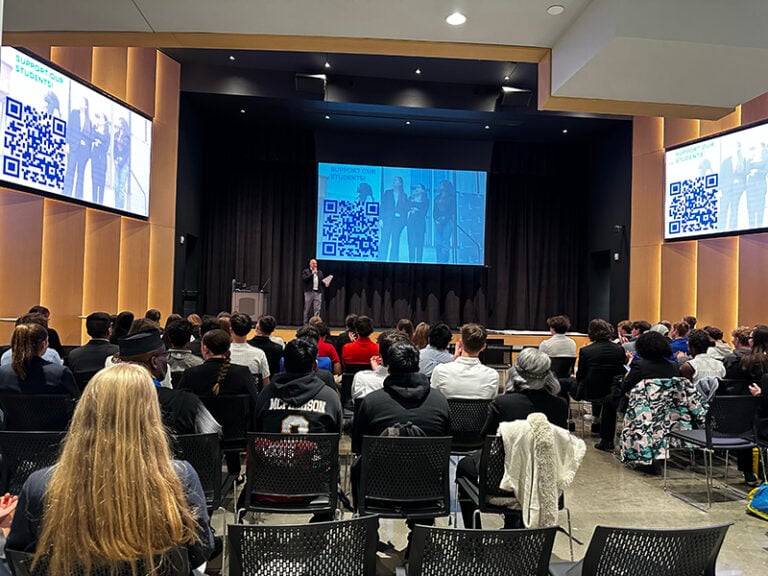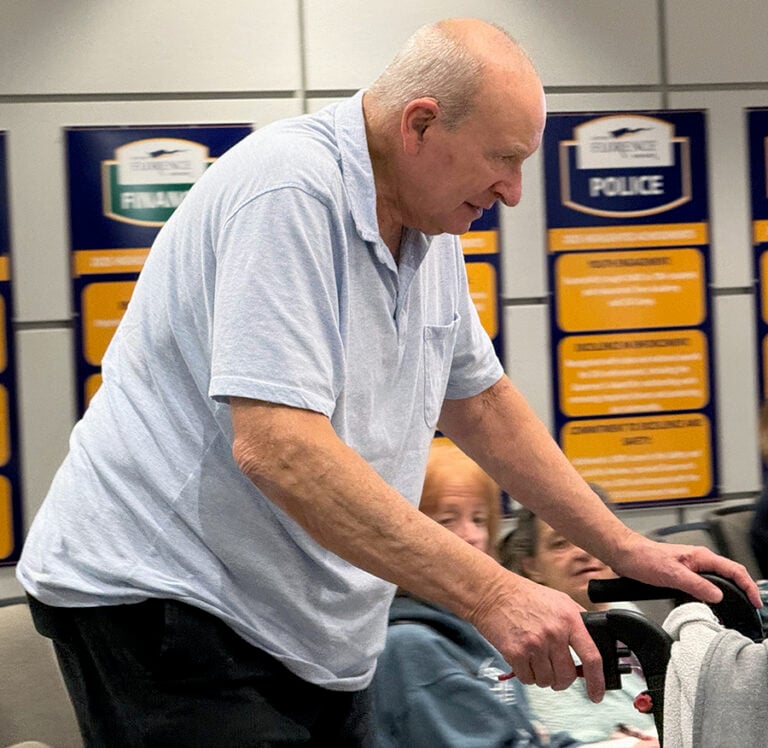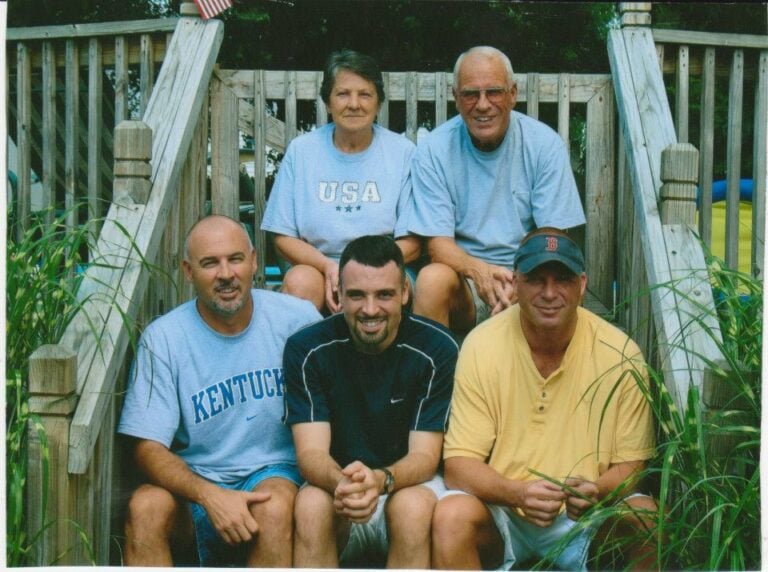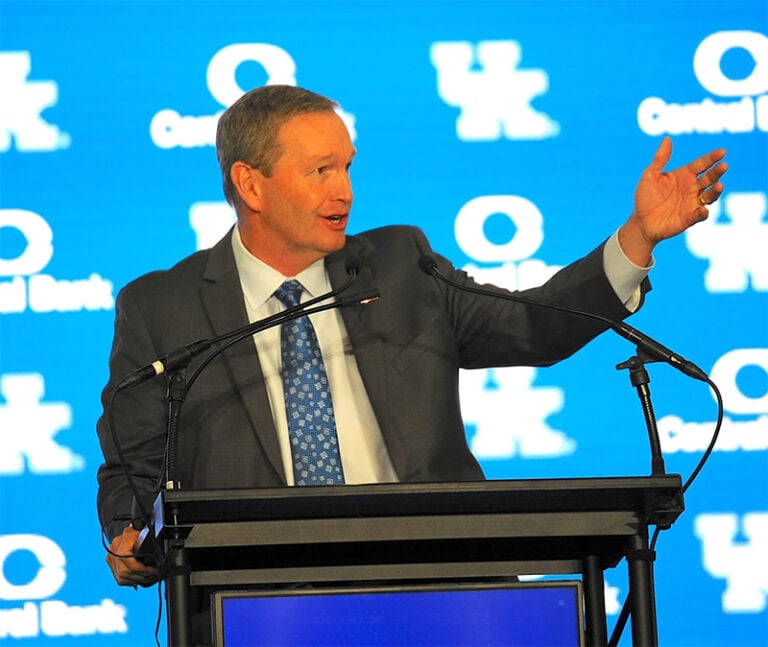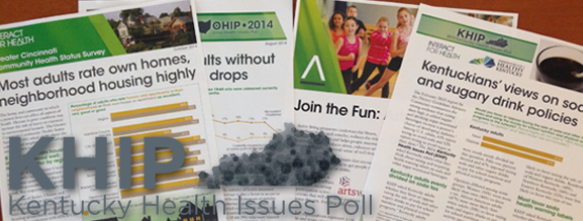
There are many ways to assess a person’s health. One way is to ask people to evaluate their own health.
In 2015, 4 in 10 Kentucky adults (43 percent) reported that their health was excellent or very good. Fewer than 3 in 10 (26 percent) said that their health was good.
However, 31 percent of adults said their health was fair or poor. These percentages are about the same as in 2014.
Research has found a powerful link between people’s response to this question and the predicted length and quality of their lives. Results are from the 2015 Kentucky Health Issues Poll (KHIP), sponsored by Interact for Health and the Foundation for a Healthy Kentucky.
“Currently, Kentucky ranks only 46th out of 50 states in the percentage of adults reporting excellent or very good health,” says Jennifer Chubinski, Ph.D., Vice President, Innovation and Learning, Interact for Health. “To better understand what might improve these numbers, KHIP also asked Kentucky adults to name the most important thing they could do to improve their health.”
Exercise, better diet are most common changes needed
KHIP asked respondents to name the most important thing they could do to improve their health status by one level (for example, from good to very good). Responses varied widely, but most could be placed into several broad categories.
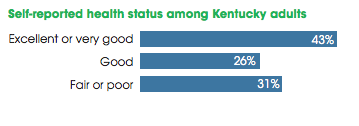
Nearly 3 in 10 adults said they could increase exercise to improve their health. This was the most common response. Respondents’ specific answers in this category included activities such as walking, running or weightlifting, or simply saying they should be more active. According to the Centers for Disease Control and Prevention, regular exercise can help reduce the risk of cardiovascular disease, diabetes and some cancers, and increase a person’s chance of living longer.
Nearly 2 in 10 adults said they could improve diet to improve their health. This was the second most common response. Respondents’ specific answers included eating more vegetables, eating less fast food and eating less sugar.
About 1 in 10 adults said one of the following actions was the most important they could take to improve their health:
• Improving their access to health care (such as getting better health insurance or medical care)
• Improving their personal medical condition (such as recovering from surgery)
• Quitting smoking.
Current health status affects what’s needed to improve health
The most common changes identified to improve health differed based on respondents’ current health status. Adults with excellent, very good or good health cited more exercise and improved diet most frequently.
On the other hand, adults with fair or poor health most commonly cited a current health problem as their most pressing need. Specific answers included needing surgery; needing to recover from diabetes, cancer, depression or another medical condition; or generally needing to get well. The second most common response was related to improved access to health care. Among other things, respondents cited a need for more frequent doctor’s visits, better health insurance or better medical care.
Time, money, willpower most common barriers to improving health
Next, KHIP asked, “What is the greatest barrier to making that change?” Nearly 2 in 10 adults said time was the greatest barrier. They either did not have enough time or were too busy to make the needed health change. Almost 2 in 10 adults said they did not have adequate willpower, motivation or the proper attitude to change their health.
About 1 in 10 adults said they could not afford to make the change that would improve their health. They cited the high cost of healthy food and being unable to afford health insurance. Another 1 in 10 said a current health problem was the greatest barrier.
Most see health change as difficult; lower-income adults consider it harder
KHIP also asked Kentucky adults how difficult it would be to make the health change they had identified. Nearly 7 in 10 adults (65 percent) said the change would be difficult or very difficult. About 3 in 10 (32 percent) said it would be easy or very easy. Making a positive health change was seen as more difficult among adults with less income. About 6 in 10 adults earning more than 200% of the Federal Poverty Level (FPL) (61 percent) said making a positive health change would be difficult or very difficult. About 7 in 10 adults earning less than 200% FPL (71 percent) said this.
More information about Kentuckians’ barriers to changing their health, and other topics, is available at www.interactforhealth.org/kentucky-health-issues-poll.








